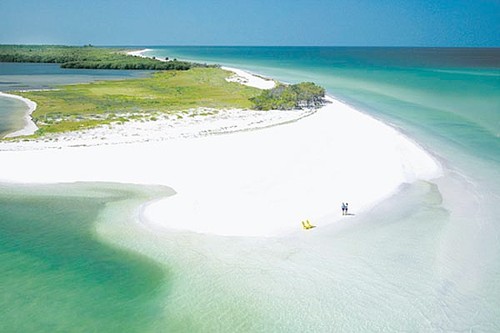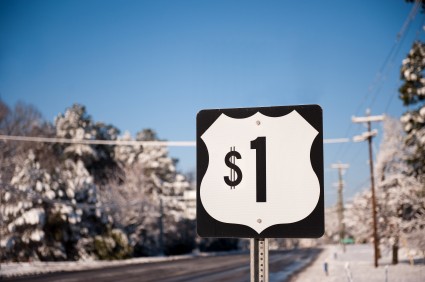 |
| Who wouldn't want to go to Grenada in the Caribbean? Those trying to get to Granada, Spain. | Image Source: CNN.com |
You'd think with all the technology at our disposal, destination mix-ups would be a rarity.
Not so.
They're surprisingly common.
One that's attracted attention this week is the unfortunate story of a couple flown to the southern Caribbean island of Grenada, instead of the ancient city of Granada, Spain.
The incident is now the subject of a lawsuit.
U.S. dentist Edward Gamson thought he'd bought tickets from London's Gatwick Airport to Granada, Spain, for himself and his partner via a British Airways booking agent, but only realized he was actually headed to Grenada in the Caribbean once on board, reported The Independent.
The destination country and flight duration hadn't been listed on his e-tickets, which instead displayed only the city name.
"It's just so sad," Gamson told The Independent. "A trip we had been really looking forward to was ruined and ... BA won't do the decent thing."
Gamson claims the airline refuses to reimburse his first-class tickets and didn't reroute the travelers to Granada from Grenada.
Gamson is now suing British Airways for the cost of the trip, including planned tours in Spain that he and his partner didn't get to take.
A spokesperson for BA told CNN the company doesn't comment on matters of litigation.
Grenada, Granada
 | ||
| British Airways made the Grenada/Granada mix-up twice in two weeks. | Image Source: CNN.com |
Remarkably, the same mix-up happened just the week before.
Lamenda Kingdon from Plymouth, UK, had also booked a British Airways flight to Granada, Spain, but found herself on a flight bound for Grenada in the Caribbean.
She'd planned the trip after being diagnosed with cancer.
When notified of the mistake, the BA crew moved Kingdon to first class and sent her back to Gatwick when the flight made a scheduled stop in St. Lucia, reported the Daily Mail.
"I genuinely don't blame anyone," she told the Daily Mail. "The person on the other end of the phone probably just misheard me. I honestly didn't notice the spelling difference."
Wrong continent
In May 2013, Sandy Valdivieso and her husband, Triet Vo, boarded a Turkish Airlines flight in Los Angeles, intending to travel to Dakar, Senegal, in western Africa, but ended up in Dhaka, Bangladesh.
The mix-up was due to the similar sounding destinations and airport codes.
The couple didn't realize the error until they were already on their connecting flight from Istanbul.
"When the flight attendant said we were heading to Dhaka, we believed that this was how you pronounced 'Dakar' with a Turkish accent," Valdivieso told the LA Times.
Wrong state
 |
| Southwest Airlines flew the same woman to wrong destinations twice. | Image Source: CNN.com |
In December 2013, 85-year-old Maria Nieves ended up in Pittsburgh, Pennsylvania, after she'd booked a Southwest Airlines flight to Fort Myers, Florida.
It was the second time such a mix-up had happened to her -- two years ago, the airline flew Nieves to Tampa, Florida, instead of New Orleans, Louisiana.
According to Louisiana's WAFB, Nieves had requested wheelchair assistance, which meant airline staff were responsible for assisting her from gate to gate.
"I can see it happening once, but twice to the same person, it's kind of like lightning striking twice in the same place," her son Robert Ortiz told WAFB.
Wrong airport
 |
| A VietJet Air flight landed at the wrong airport last week. | Image Source: CNN.com |
Last Thursday, a VietJet Air plane that took off from Hanoi landed at the wrong airport.
Instead of arriving in Cam Ranh Airport near Nha Trang, the aircraft landed 140 kilometers away in Da Lat.
The airline flew the misdirected passengers to their original destination via another flight, reported local news outlet Thanh Nien News.
In January, another Southwest Airlines plane landed at a small airport in Taney County, Missouri, approximately seven miles from where it was meant to land at Branson Airport.
Due to the difference in airport runway lengths -- Taney County airport's runway is 3,738 feet compared with Branson Airport's 7,140 feet -- pilots were forced to brake hard when the plane touched down.
No one was hurt and the airline refunded all tickets and provided future travel credit for passengers.
Want to read more interesting travel stories? Follow this Louis Habash blog site for more amusing tales.








